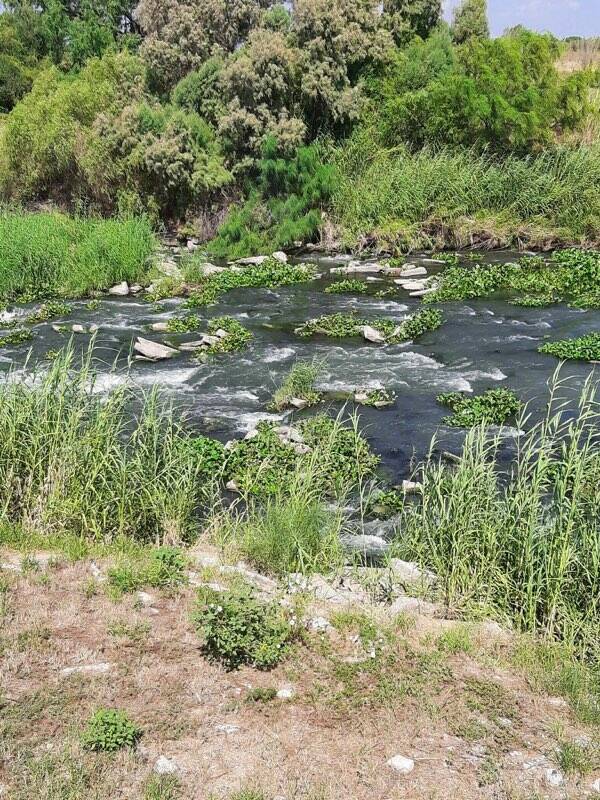The Brownsville Public Utility Board on Friday implemented Stage 2 of its Drought Contingency Plan due to record low water levels in Amistad and Falcon reservoirs on the Rio Grande.
Stage 2 was implemented only once before, during the late 1990s, and is triggered when the U.S. share of the reservoirs’ water storage hits 25 percent. As of the July 2 the level was 25.37 percent and falling, with no significant rain or tropical activity since then or in the long-term forecast.
Restrictions under Stage 2 include everything covered under Stage 1, automatically implemented each year on May 1 and calling for voluntary compliance with water-usage guidelines. Those guidelines become mandatory under Stage 2, which indicates a Water Shortage Alert, with the goal of reducing average daily water demand by 5 percent and water demand on the BPUB system by 10 percent.
Stage 2 restrictions on automated residential and commercial landscape irrigation impact customers based on the last digit of their service address. Irrigation/watering is limited to the two times per week from midnight to 7 a.m., or from 7 p.m. through midnight. Watering days are Monday and Saturday for addresses ending in 0 or 1; Tuesday and Saturday for 2 or 3; Wednesday and Saturday for 4 or 5; Thursday and Sunday for 6 or 7; and Friday and Sunday for addresses ending in 8 or 9. Properties with multiple addresses will be identified by the lowest address number.
Exceptions are landscape watering using a hand-held garden hose or soaker hose, or bucket or watering can no larger than five gallons in capacity, or drip irrigation system, all of which are allowed at any time. Any type of new landscape planting, including trees, grass, flowers and shrubs, may be watered any day of the week under Stage 2, but for no longer than four weeks, at which point they will no longer be considered new landscaping.
Property owners may apply for an additional four-week variance for landscape plants, though after that watering is allowed only on designated landscape watering days.
Washing motor vehicles, motorcycles, boats, trailers airplanes or other vehicles is prohibited except on designated landscape watering days. Residential car washing will be allowed on those days between midnight and 10 a.m. or 7 p.m. through midnight, and must be performed with a bucket or watering can no larger than five gallons or hand-held hose with a shutoff nozzle. BPUB recommends that no vehicle be washed more than twice per month. Vehicles can be washed at commercial vehicle wash facilities — car washes — at any time.
Vehicles that require washed frequently for public safety and/or health reasons, such as garbage trucks or vehicles that transport food, are exempt from Stage 2 regulations. Fundraising car washes are considered residential car washing under Stage 2.
Water-use restrictions for golf courses are based on water management plans developed by the operators and approved by BPUB’s general manager or designee. Restaurants are prohibited from serving water to customers unless requested by the customer.
The following types of water usage are considered non-essential and are prohibited: washing sidewalks, walkways, driveways, parking lots, tennis courts or other hard-surface areas, unless necessary for public safety and/or health; washing buildings or structures except for immediate fire protection or preparation for painting; dust control unless necessary for public safety and/or health; flushing gutters or allowing water to run or accumulate in gutters or streets; failing to repair controllable water leaks within a reasonable time after receiving notice to repair them.
BPUB General Manager and CEO John Bruciak said Friday that “we’re trying to educate people more than anything else. We see it, we bring it to their attention.”
Sprinklers running in the middle of the day, for instance, may invite a visit from a BPUB or city employee or a notice on the door, he said. Given that businesses and residences all over the city draw water from resacas for irrigation, it’s vital that Stage 2 restrictions are followed, since the Rio Grande doesn’t have enough water in it for BPUB to maintain resaca levels, Bruciak said.
“I think you’re starting to see that already. … People are watering from resacas and the water is going down and down,” he said.
If Stage 3 drought contingency restrictions are triggered, which happens if the combined U.S. share of water in Amistad and Falcon falls to 15 percent, it would the first time in BPUB history. In that event, drawing water from Brownsville’s resacas would be prohibited altogether.
For now, property owners are required to set their automated irrigation systems to operate on the days of the week designated by the last digit of their address.
“I think most people can do that or their irrigation company can help them with that,” Bruciak said. “Those are the kinds of things we’re going to bring to the attention of the public, as our employees and city employees are out in the city, if they see that they’ll stop and try to assist on that.”
He described the reservoir situation as “pretty serious” and said BPUB is still waiting for an update on reservoir levels.
“We’re pretty darn low and we’re anxious hopefully sooner rather than later to find out what the new levels are from the state to see how close we are to Stage 3,” Bruciak said.
The best way to postpone Stage 3 restrictions for as long as possible is for all BPUB customers to comply fully with Stage 2 restrictions, he said.
“We’re going to try to emphasize it heavily: this is critical and anything you can do, it helps the situation,” Bruciak said.




